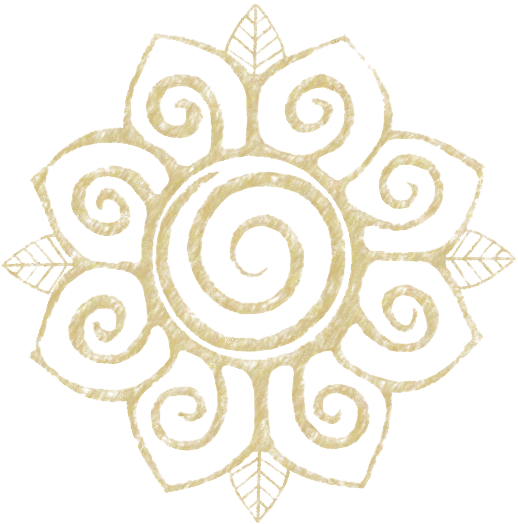 BA, BSc, MA, M.Ed, MC, MSW, PhD, MA, M.Ed, MC, MSW.... what do all these mean? Choosing a right counsellor can be very confusing, especially if you are trying to understand what all the letters following counsellors’ names mean. First, it is important to note that at this time terms “counsellor”, “therapist” and “psychotherapist” are not regulated in British Columbia. This means that anyone is able to set up a private practice and call themselves a counsellor. Yes, absolutely anyone! So someone who calls themselves a counsellor or psychotherapist might only have high school deegree or they might posessss a doctorate degree, but their doctorate is in Experimental Physics! Things are changing and many counsellors hope that soon the name counsellor or therapist will be protected and only reserved for those with relevant education and experience. But at this point anyone can have a title of a counsellor, therapist or psychotherapist, even if they have no credentials, education, training, or experience. So it is important to be aware of counsellor’s education and professional designation. Finding a counsellor is not difficult but it can be overwhelming to find one who is right for you. My best suggestion is to invest some time in researching before you make your decision. Finding a good match with a counsellor can save you time, money, and disappointment. Understanding counsellor's education and training background is a first step in making an informed decision. Here is a brief guideline for deciphering the letters following counsellor's name. The first letters after counsellor’s name usually refers to counsellor’s degree and the following letters usually refer to counsellor’s professional designation. Counsellor’s Education… BA, BSc, MA, M.Ed, MC, MSW, PhD There are counsellors who have no degree or counselling education and some have a counseling-related diploma earned after high school. Many counsellors have a bachelor’s degree but most have a master’s degree in counselling psychology, education or social work. Some counsellors and most psychologists typically have a doctoral degree in psychology. College Education Community and private colleges offer diplomas in counselling. These can require between 6 month to 2 years to complete. University Education Counsellors with a bachelor degree might have the following letters behind following their name: BA, BSc BA – Bachelor of Arts. Many counsellors have a bachelor’s degree. It’s good to ask what they major was because it can vary from psychology to education to literature. BSc. – Bachelor of Science. Some counsellors have BSc in with emphasis on science coursework. Every university is different. You might want to ask the counsellor what their BSc is in. Graduate School Most counsellors hold a master`s degree. Master’s programs vary from 1-3 years in duration following the completion of a bachelor’s degree. Counsellors with a Masters degree might use the following letters after their name: MA, M.Ed, MC, MSW MA – Master of Arts. Most counsellors have an MA in Counselling or Clinical Psychology, but some might have an MA in English Literature. It is a good idea to ask, “What is your MA in?” M.Ed – Master of Education. This is a master’s degree that is earned the faculty of education. MC – Master of Counselling. This degree is usually awarded from universities outside of Canada. MSW – Master of Social Work. Social workers training is focused on improving the quality of life and well-being of individuals and communities through intervention, advocacy and direct practice. PhD – Doctor of Philosophy. Some counsellors will have a Doctorate`s degree, which is often another 4 years of research focused education following the Master`s Degree. Most PhD professionals in counselling field have a PhD in psychology, counselling psychology or social work. Still, it is important to ask ‘What is your PhD in?” as some with PhD following their name may hold a PhD in Marine Biology. Professional Designations... RPC, RCC, CCC, RSW, RMFT, R.Psych Therapists will have different credentials based on the education they have completed and supervised experience they have received. RPC – Registered Professional Counsellor. This is an experienced-based, rather than a degree-based designation. Counsellors do not need to have a specific counselling to hold this designation. However, many RPCs hold a diploma in the field, or other counselling credentials. Among other requirements, to meet the RPC requirement counsellors need to have a number of supervised years in the field, as well as other requirements. You might find that RPCs are referred to as master practitioners of counselling, but this term is not equivalent to a master’s degree. RCC – Registered Clinical Counsellor. This is a common counselling designation in BC. Practitioners with counselling-related master’s degrees and meeting other clinical standards such as experience and supervision hours are qualified to have this designation. RCCs are members of the BC Association of Clinical Counsellors. Counsellors who choose to be mebers of this association make a choice to abide by a code of ethics, and are covered by liability insurance. CCC – Canadian Certified Counsellor. Counsellors with varied counselling education backgrounds may possess this designation. RSW – Registered Social Worker. Social workers with Bachelor’s, Master’s and Doctoral degrees in social work who meet other professional standards are able to have this designation. All RSWs are members of the BC College of Social Workers. RMFT – Registered Marriage and Family Therapist. These counsellors must extensive experience and training in couples and family therapy to be eligible for this designation. R.Psych – Registered Psychologist. In BC Psychologists must possess a PhD and pass a rigorous examination. See the BC College of Psychologists for further details. Do not be afraid to ask the counsellor about their education and professional designation. Having said this, someone can seem like a perfect ‘fit’ with all the right things credentials on paper, but if you don’t feel comfortable with him or her the therapeutic relationship is going to be hard to establish. Research shows that choosing the right counsellor is the key to a successful counselling experience. Stay tune for a guide to help facilitate discussion between you and a potential counsellor. Katya Sivak, BA, MA Registered Clinical Counsellor |
CategoriesArchives
January 2018
|
Vancouver Counselling Therapy
604-417-3315


 RSS Feed
RSS Feed
